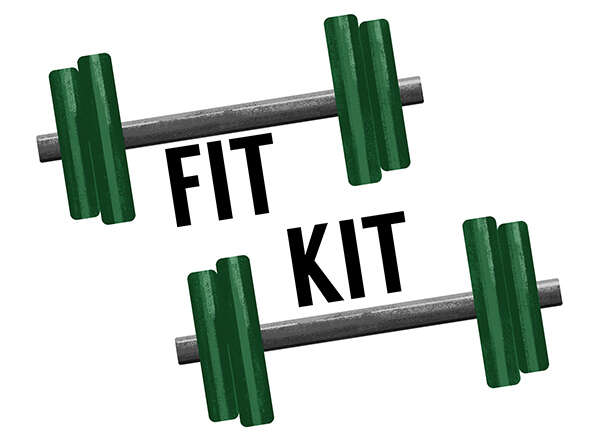How to Trick Your Body Into Eating Less After a Workout

Experience is often a cruel teacher, which becomes abundantly clear when you try to follow the advice of genetically blessed trainers and nutritionists who blithely chant, "Exercise more and eat less!" as if those two things are somehow easy to do together.
But when you try to exercise more and eat less, you end up leaving the gym feeling like you need to eat a 2lb burrito. And then another one. Because you're so stupid hungry from all the exercise.
Good thing there's a trick for that.
Don't think of exercise as exercise
It may sound like a riddle, but it's a technique that's been scientifically studied. A 2014 study from the Cornell Food and Brand Lab set out to investigate why some people gain weight when participating in exercise programs. Researchers assumed (in the most obvious assumption ever) that some people eat more after exercise, overcompensating for the calories burned. They went on to postulate that this tendency to "eat everything in sight" wasn't because exercisers actually needed more calories, but because they felt they needed more calories, either as a reward for their effort or to refuel after their workout.
To test this theory, researchers took people on a hike. Half the participants were told they were going on the hike for exercise, and the other half were told they were going on a scenic walk for fun. The hike itself, though, was exactly the same for both groups.
After these hikes, participants were provided with a meal or a snack, and they were allowed to eat as much or as little as they wanted.
The results were fascinating.
People who thought they were hiking for exercise ate 35% more chocolate pudding after their workout than those who thought they were taking the scenic walk. In the other protocol, the hike-for-exercise group ate 206 more calories in M&M's than the hike-for-fun group.
Basically, those who went into exercise assuming it would be an enjoyable experience rather than "work" ended up eating considerably less after their workout.
Talk about a mindfuck.
Play your own mind games
The best thing about this research is how easy it is to apply to your own life.
First, stop doing exercise you hate or dread. Katie Proctor, a healthy lifestyle and business coach at Elevate with Katie Proctor, says, "I find that when exercise is viewed as a chore, then food is more often used as a reward (for doing it), or even punishment (for avoiding it). When exercise is viewed as more than something to check off a to-do list, it supports a healthier relationship with food. I suggest clients find their 'soulmate workout' or something they can genuinely look forward to."
So if you hate running, stop running. There are lots of other ways to meet activity guidelines, just try a few new classes and figure out what you actually enjoy.
Second, give yourself a pep talk whenever you plan on getting active, treating yourself to an inner monologue of all the reasons your workout is, in fact, enjoyable. Even if you don't believe yourself at first, the mind is a powerful tool, and a positive attitude is half the battle.
Finally, remind yourself after your workout that a little sweat doesn't give you carte blanche to eat everything in the buffet line. Comments like, "I worked out today, I totally earned another slice of cheesecake," aren't really true, and they certainly won't help you meet your goals.
Sign up here for our daily Thrillist email, and get your fix of the best in food/drink/fun.
